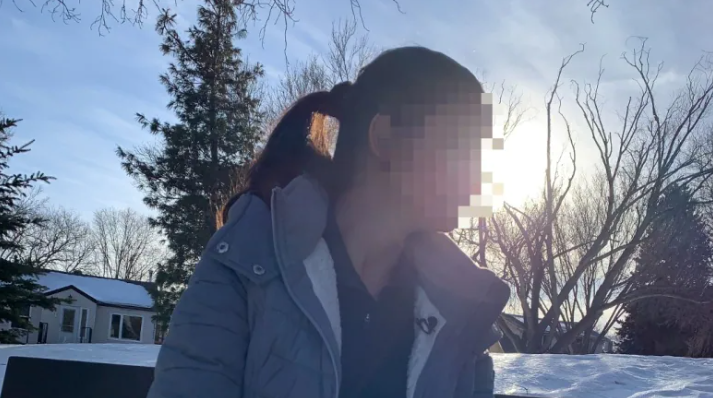Woman facing removal from Canada over fake letter loses judicial review

A Federal Court judge found it was Kaur’s responsibility to confirm her own college admission
An Edmonton woman facing removal from Canada has lost a judicial review of the federal government’s decision, leaving her with one final legal option to pursue.
Karamjeet Kaur, 25, has been fighting an Immigration and Refugee Board of Canada decision to have her removed from Canada over a fake letter of admission to an Ontario college supplied as part of her 2018 student visa application.
Canadian officials accept that Kaur didn’t know the letter – which was filed by an immigration agent who now faces criminal charges in India – was fake.
But the immigration board insists it was Kaur’s responsibility to have checked with the school to ensure her admission was real.
Kaur sought a judicial review of that decision, but that was dismissed in January by Federal Court Justice Ann Marie McDonald, who found that the immigration board’s decision was reasonable.
- Woman faces removal from Canada after college admission letter turned out to be fake
“The applicant placed her trust in an immigration consultant and was deceived. However, these circumstances do not absolve the applicant from the consequences of her misrepresentation,” McDonald said in a written decision.
McDonald’s finding has left Kaur filled with anxiety about her future.
“Everybody from the government, like they are seeing me as a criminal, but I’m not because I think I’m the victim of this case,” Kaur said in an interview this month.
As a last ditch effort, Kaur has filed an application for humanitarian and compassionate consideration, which is available in exceptional cases to people who do not qualify under other grounds.
“I think this is the only hope that I have now,” she said.
Part of the reason Kaur’s family sent her to Canada for school is because of a physical disability that limits her movement and made her the target of discrimination and harassment in her home community in Punjab in northern India.

Kaur’s family are low income and do not have access to computers or any familiarity with the immigration system, and so hired an immigration agent to help with Kaur’s visa application.
The agent created an application – that included the fake college admission letter – that was signed by Kaur’s male cousin. She never signed it herself.
Canadian officials originally accepted the admission letter and issued the student visa. After Kaur arrived in Ontario in April 2018, the agent told her the spot in the Ontario college had fallen through.
She made her way to Edmonton, enrolled in Norquest College on her own, and completed a business administration diploma. She then got a work permit and a retail job where she has now worked for four years.
It wasn’t until she applied for permanent residency in 2020 that officials determined the letter for the school was fake, and she lost her January 2022 bid to stay.
In December 2022, Kaur’s lawyer appeared before McDonald, making several arguments to have Kaur’s case reconsidered, but the judge rejected all of them.
‘No room for discretion’
“The way Canadian law is drafted and the way it is applied – that leaves no room for discretion,” said Kaur’s lawyer Manraj Sidhu.
“They do not look at the intent of a person doing an action.”
Sidhu said McDonald’s decision does not surprise him; her findings align with precedents in these kinds of cases.
In her decision, the judge quotes from a 2021 decision about misrepresentation made by someone other than the applicant, noting that while it may seem rigid, the integrity of the immigration system relies on an applicant ensuring they have provided truthful information.
McDonald also questioned Kaur’s portrayal of herself as vulnerable and lacking resources – particularly noting that Kaur has a computer sciences diploma from her time in India.
But Kaur and her lawyer say it was the immigration agent who submitted that Kaur had studied computer sciences, when in fact she studied for a bachelor of science at a completely different school than the one the agent listed.
Sidhu added that even though Kaur attended post-secondary studies in India, that doesn’t mean she had ready access to computers or phones to contact the college.
He believes Canada’s immigration system doesn’t properly consider the realities of what life is like for people in Kaur’s circumstances.
“Living in India, when you are living close to the poverty line, you don’t have this luxury of having international calls facility in your phone,” Sidhu said.
“Everything is posted in the letter of acceptance and it is treated as a one way ticket to the college. And there is never a doubt about the veracity or authenticity of that document.”

Sidhu is also worried about his client’s safety if she were required to return to India.
When the false letter was discovered, Kaur’s family filed a report with police in Punjab, and the agent was arrested and charged. While out on bail he disappeared, and Kaur and her family have received threats that she would be harmed if she returns and testifies against him.
Sidhu said it’s likely that they will hear back about the compassionate and humanitarian leave application in the next four to five months.
Kaur said that since going public with her story in 2022, she’s been overwhelmed by support from friends, colleagues and the wider community.
“I have a lot of friends and I have support in this difficult time. Everybody [is] trying to support me. I’m hoping I will be OK,” she said.
Related News
Trade war, slumping border traffic: What does that mean for the Gordie Howe bridge?
Amid U.S. President Donald Trump’s tariffs which have triggered a trade war with Canada, cross-border trips haveRead more
Trump administration threatens Harvard’s foreign enrolment, tax-exempt status
U.S. Homeland Security Secretary Kristi Noem speaks during an event on April 9, in Washington,Read more
